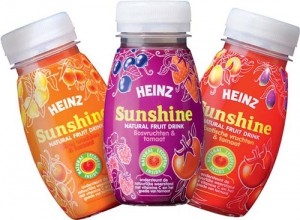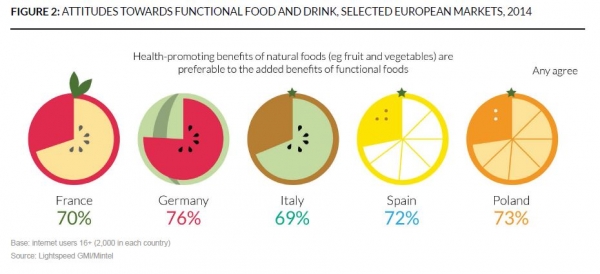Warning: Health is not the top factor motivating functional food purchases

The findings serve as a reminder that function alone doesn’t spell fortune.
The researchers measured willingness to pay for a new functional snack made with the botanical white lupine and citrus fibre in 156 consumers in the Italian island of Sicily.
The survey found participants were willing to pay a premium of between 0.63 and 0.64 euros for the functional snack compared to a conventional comparison – but that this premium depended not only on the functional components but also on characteristics beyond health such as origin, safety, naturalness and price.
“These findings have implications for the food sector attempting to design and promote consumption of functional foods, and suggest health is not the only factor motivating functional food purchases,” wrote the researchers from the University of Catania in Sicily, Italy and the Oklahoma State University in the US.
Published in the journal Food Quality and Preference, the findings suggested consumers have different “subjective beliefs” about functional and non-functional foods.
The motivators
They found safety on average was the most important food value while healthiness and labelled information were the next most important.
"The other food values with positive scores were naturalness, origin and taste. On the contrary, the least important food values for consumers are convenience, appearance and quite surprisingly, price and environmental impact," they wrote.
Yet what order these factors were put in depended on the individual.
"The large standard deviations reveal that there is significant heterogeneity in the sample with regard to relative importance of food values."
All about the brand
Peter Wennström, founder and president of The Healthy Marketing Team, said the findings fell in line with his view on what is needed to secure a health food success: need for the product, acceptance of the ingredient, understanding of the benefit and trust of the brand.
He said recent research conducted with Lund University in Sweden put ‘brand trust’ as the most important factor ahead of all others including health claims.
“In our view most players today understand the critical role of taste and convenience when needed,” he told us.
“What is not yet understood is the critical role of brands.”
He cites Heinz’s 2007 launch of its ‘Heinz Sunshine’ health drink as an example of a non-health brand making the mistake of trying to push a health food.
“Heinz is simply not trusted to support a health product,” he said.
Health source
Meanwhile Mintel data backed the Italian findings on the importance of 'naturalness'.
Its data suggested consumers prefer to get their health benefits from the innate health profile of a food, for example calcium in milk, as opposed to added functional ingredients.
However an NPD trend report this year suggested this innate health profile could also be used as a canvas for other added health ingredients.
“Using milk’s own inherent qualities — as in the case of night milk — speaks directly to those preferences.
"But using milk as a base for functional additions, especially natural ingredients such as botanicals, can also inspire an element of trust, given that many consumers already associate milk with health,” Sarah Theodore, Mintel global drinks analyst, wrote in a report discussing the trend of melatonin-rich ‘night milk’.
“Milk’s inherent healthfulness also could help consumers feel more comfortable about using functional drinks over other products such as OTC [over the counter] sleep aids.”
Avoiding a functional food flop
Commenting on the findings Virpi Varjonen, analyst at marketing agency Invenire, said there were still too many food firm who saw “the world through [the] single viewpoint” of health claims.
Echoing the Italian findings, she said in fact purchase decisions seemed to be based on numerous factors including price, taste and general positioning.
However she called for more thorough research on this topic.
Source: Food Quality and Preference
Vol 53, pp 151–158, doi:10.1016/j.foodqual.2016.06.009
“The role of beliefs in purchasing process of functional foods”
Authors: G. Pappalardo and J. L. Lusk







